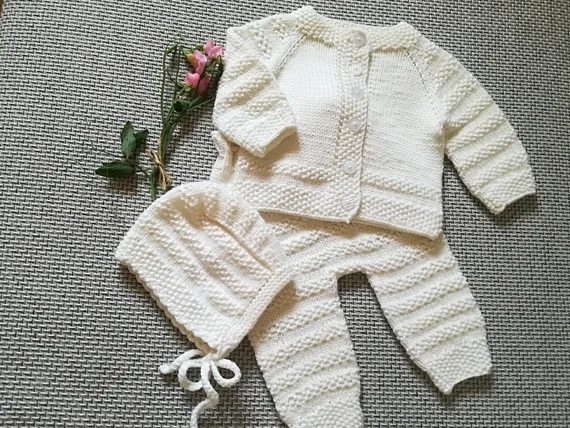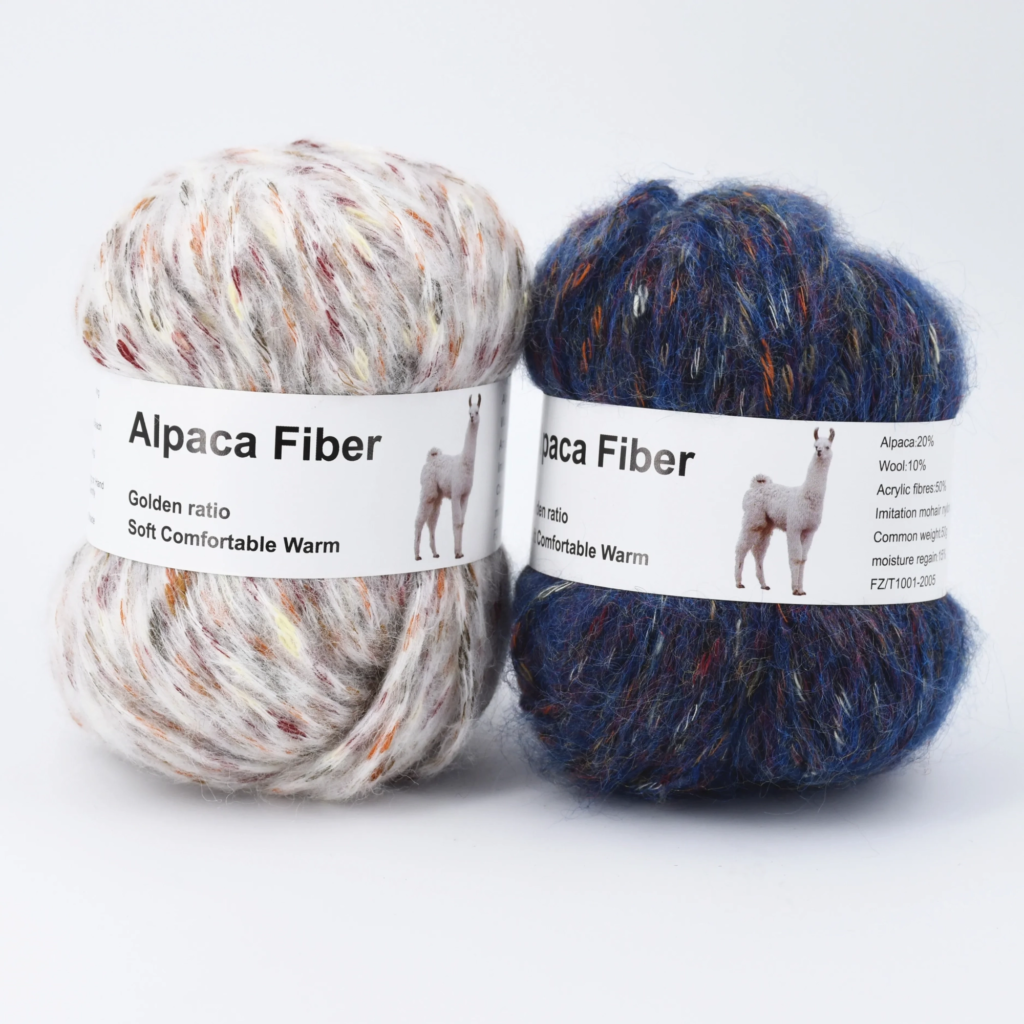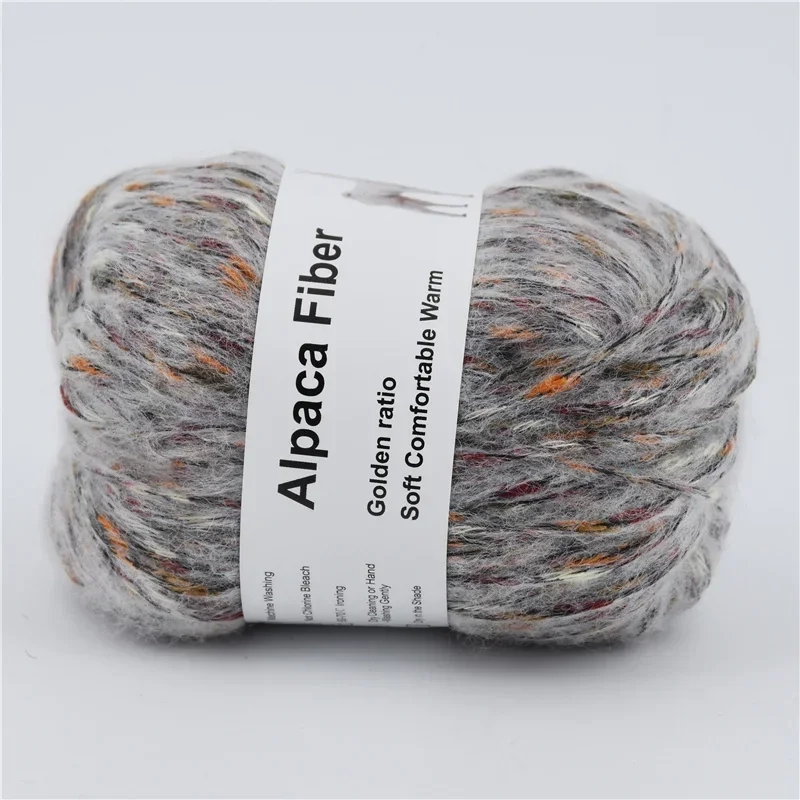When it comes to choosing the right yarn for your knitting or crocheting projects, the options can be overwhelming. Among the myriad types of yarn available, alpaca wool stands out for its unique properties and versatility. From its luxurious softness to its superior thermal regulation, alpaca wool offers several benefits that make it an ideal choice for a wide range of projects. In this detailed guide, we’ll explore the many reasons why you should consider alpaca wool yarn for your next knitting endeavor.
Alpaca wool is harvested from alpacas, native to the Andes Mountains in South America, primarily in Peru, Bolivia, and Chile. Unlike sheep’s wool, alpaca wool does not contain lanolin, making it hypoallergenic. This luxurious fiber is available in a range of natural colors and can also be dyed to achieve any desired shade. Alpaca wool’s unique structure lends itself to incredible softness and excellent thermal properties, making it a favorite among knitters and crocheters worldwide.
Comparing Alpaca Wool to Other Fibers
To truly appreciate the benefits of alpaca wool, it’s helpful to compare it to other common fibers like sheep’s wool, cotton, and synthetics. Each type of yarn has its pros and cons, but alpaca wool offers several superior qualities that set it apart.
Softness and Comfort
One of the most distinguishing features of alpaca wool is its unparalleled softness. Alpaca fibers are finer than most types of sheep’s wool, which makes them incredibly soft to the touch. This softness can be comparable to luxurious fibers like cashmere, but at a more accessible price point.
- Sheep’s Wool: Traditional sheep’s wool can vary in softness depending on the breed of sheep. While merino wool is known for its softness, most other types of sheep’s wool can be coarse and itchy, making them less comfortable for direct skin contact, especially for those with sensitive skin.
- Cotton: Cotton yarn is soft and breathable, making it comfortable for summer garments. However, cotton lacks the elasticity and warmth that wool offers, making it less suitable for projects that require stretch or warmth.
- Synthetic Yarns: Synthetic fibers like acrylic can be quite soft and are often used as a wool substitute for those with allergies. However, they lack the natural feel and breathability of natural fibers and can sometimes feel plasticky.
Thermal Regulation
Another significant advantage of alpaca wool is its superior thermal insulation. Alpaca fibers are hollow, which allows them to trap more air and provide better insulation. This makes alpaca wool garments warm yet lightweight, perfect for layering.
- Sheep’s Wool: Like alpaca wool, sheep’s wool fibers can trap air, providing excellent insulation. However, sheep’s wool can be heavier and less breathable than alpaca wool, making it less comfortable to wear for extended periods.
- Cotton: Cotton fibers do not provide good insulation. Cotton garments are more suited for warm weather due to their breathability, but they will not keep you warm in cold conditions.
- Synthetic Yarns: Synthetic fibers generally provide poor thermal regulation. They can trap heat and moisture, making them uncomfortable in varying weather conditions. While some advanced synthetics aim to mimic the insulation properties of natural fibers, they often fall short compared to alpaca wool.
Moisture Wicking and Breathability
Alpaca wool is naturally moisture-wicking and breathable, which helps to regulate body temperature and keep you comfortable.
- Sheep’s Wool: Wool is known for its moisture-wicking properties, which can help keep you dry during physical activities. However, sheep’s wool can sometimes feel heavy when wet and takes longer to dry.
- Cotton: Cotton is highly absorbent but retains moisture, which can make cotton garments feel heavy and uncomfortable when wet. This property also makes cotton less ideal for projects that need to handle moisture well.
- Synthetic Yarns: Synthetic fibers can wick moisture away from the body but do not offer the breathability of natural fibers. This can result in a clammy feeling when worn for extended periods.
Hypoallergenic Properties
One of the most appealing aspects of alpaca wool is that it is hypoallergenic. Unlike sheep’s wool, alpaca wool does not contain lanolin, a natural oil that can cause allergic reactions in some people.
- Sheep’s Wool: Lanolin in sheep’s wool can be irritating to those with sensitive skin or allergies. While some types of processed wool have reduced lanolin content, they can still cause reactions for some people.
- Cotton: Cotton is generally considered hypoallergenic and is often recommended for people with sensitive skin. However, it lacks the warmth and elasticity of wool.
- Synthetic Yarns: Many synthetic yarns are hypoallergenic, but they can still cause skin irritation due to the chemicals used in their production. Additionally, they may lack the natural comfort and breathability of alpaca wool.
Durability and Lower Tendency to Pill
Alpaca wool is known for its durability and its lower tendency to pill compared to other types of wool. Pilling occurs when fibers break and tangle, forming small balls or “pills” on the surface of the fabric.
- Sheep’s Wool: Wool can be durable, but it tends to pill, particularly in high-friction areas. Some types of wool, such as merino, are more resistant to pilling, but they can still suffer from this issue over time.
- Cotton: Cotton is relatively durable but can lose its shape and become worn out faster than wool. Cotton fabrics can also pill, especially when subjected to friction during washing and wearing.
- Synthetic Yarns: Many synthetic fibers are designed to resist pilling, but they can still suffer from wear and tear over time. Additionally, synthetic fibers can become less elastic and lose their shape after repeated use.
Why Alpaca Wool is Perfect for Baby Clothing, Winter Accessories, and Sensitive Skin
Baby Clothing

Alpaca wool’s softness, hypoallergenic properties, and breathability make it an ideal choice for baby clothing. Babies have sensitive skin, and any irritation can lead to discomfort or rash. Alpaca wool ensures that baby garments are soft and gentle, providing both warmth and comfort.
- Gentle on Sensitive Skin: The lack of lanolin ensures that alpaca wool is gentle on a baby’s delicate skin, reducing the risk of irritation or allergies.
- Warmth Without Bulk: The lightweight yet insulating properties of alpaca wool make it perfect for keeping babies warm without adding unnecessary bulk.
- Natural Moisture-Wicking: Alpaca wool’s moisture-wicking properties help keep babies dry and comfortable, reducing the risk of overheating.
Winter Accessories
When it comes to winter accessories like scarves, hats, gloves, and socks, alpaca wool is unmatched. Its combination of warmth, softness, and durability ensures that your winter gear will keep you cozy and stylish throughout the cold months.
- Superior Insulation: The hollow fibers of alpaca wool trap air more effectively, providing exceptional warmth without the heaviness.
- Softness and Comfort: Winter gear made from alpaca wool will feel luxuriously soft against your skin, making it more comfortable to wear for extended periods.
- Durability: Alpaca wool’s strong fiber structure means your winter accessories will last longer and maintain their shape and appearance even with regular use.
Sensitive Skin
For those with sensitive skin or allergies, alpaca wool is a game-changer. The hypoallergenic nature of alpaca wool makes it a suitable choice for anyone who experiences irritation or discomfort with other types of wool.
- Lanolin-Free: The absence of lanolin reduces the risk of allergic reactions, making alpaca wool garments comfortable and irritation-free.
- Breathability: Alpaca wool’s natural breathability ensures that your skin can breathe, reducing the likelihood of perspiration and discomfort.
- Softness: Alpaca wool’s softness makes it gentle on sensitive skin, providing a pleasant wearing experience without itching or scratchiness.

Alpaca Wool Thick Yarn
Alpaca Wool Thick Yarn – the quintessential choice for crafting enthusiasts who desire warmth, durability, and a splash of color in their handmade creations. This exclusive pack includes 5 pieces, totaling 250g of premium blended yarn, specifically engineered for hand knitting and crocheting projects that stand out in both quality and design.
Conclusion
In conclusion, alpaca wool yarn offers a plethora of benefits that make it a standout choice for knitting and crocheting projects. Its unparalleled softness, excellent thermal regulation, moisture-wicking properties, and hypoallergenic nature make it suitable for a wide range of applications, from baby clothing to winter accessories. Additionally, alpaca wool’s durability and lower tendency to pill ensure that your handmade creations will last and retain their beauty over time.
Whether you’re a seasoned knitter or a beginner looking to experiment with new materials, alpaca wool yarn is a fantastic option that combines comfort, functionality, and aesthetic appeal. So, next time you’re considering yarn for your projects, give alpaca wool a try, and experience the magic of this luxurious and versatile fiber. Happy knitting!









